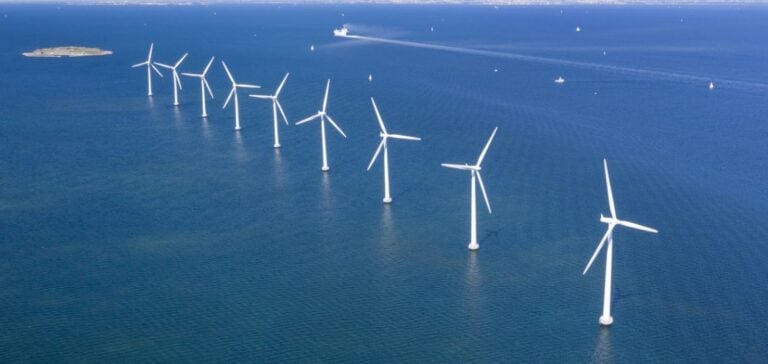The UK government is increasing the budget for its annual renewable energy auction to £1.56 billion, a 50% increase on the previous year.
The initiative aims to accelerate the transition to decarbonized electricity generation by 2030.
Energy Secretary Ed Miliband says the increase is essential to stimulate investment in renewables such as wind and solar.
Fund Allocation and Objectives
Of the £1.56 billion, £1.1 billion is allocated to offshore wind, an increase of £300 million on the previous year.
This amount exceeds the cumulative budget of all previous auctions.
185 million is earmarked for established technologies such as onshore wind and solar, with an increase of 65 million.
270 million is earmarked for emerging technologies such as floating offshore wind and tidal power, an increase of 165 million.
The role of auctions and CfDs
Renewable project developers can bid for guaranteed price contracts, known as Contracts for Difference (CfDs).
These contracts offer financial security by guaranteeing a minimum price for the electricity produced.
If the market price of electricity falls below this minimum, the government makes up the difference.
If market prices are higher, producers pay the difference to the government.
Industry reactions and challenges
This budget increase is welcomed by players in the renewable energies sector, who see it as necessary to meet national targets for offshore wind power capacity, set at 60 GW by 2030 compared with the current 15 GW.
Companies such as Equinor, Iberdrola, Oersted and TotalEnergies are among the main beneficiaries of this new allocation.
Economic and Environmental Outlook
Keith Anderson, CEO of ScottishPower, points out that this measure will unlock billions in private investment, support thousands of jobs and strengthen the country’s energy security, while producing green electricity at affordable prices for decades to come.
However, analysts like those at Bernstein remain cautious, noting that even with this budget increase, the government’s ambitious targets may not be met, due to previous auction failures.
Challenges of Complementary Technologies
According to Glenn Rickson, analyst at S&P Global Commodity Insights, the ambitious goal of decarbonizing the energy sector by 2030 will have to be achieved without significant contributions from carbon capture and storage (CCS), next-generation nuclear or clean hydrogen.
Rickson notes that the construction of new nuclear reactors, such as Hinkley Point C, may not be completed in time to contribute to this goal, and that hydrogen is not expected to play a major role until 2035.
The AR6 Auction Context
Allocation Round 6 (AR6), scheduled for August 5-9, will see the announcement of selected projects in early September.
Bidding caps were raised by the previous Conservative government late last year to reflect rising development costs.
The bidding cap for offshore wind is set at GBP 73/MWh in 2012 prices, a 66% increase on the previous auction.
Citi analysts estimate that the increased budget for offshore wind in AR6 could see 5.7 GW of capacity awarded, 1.6 GW more than under the previous budget.
However, given the size of the potential projects (10 GW), this increase should not significantly reduce competition.
The increase in the renewable energy auction budget marks a crucial step towards the complete decarbonization of the UK electricity sector.
This initiative should promote investment in green technologies and position the UK as a world leader in clean technologies.
However, the success of this undertaking will depend on the ability of government and business to overcome persistent financial and technological challenges.





















